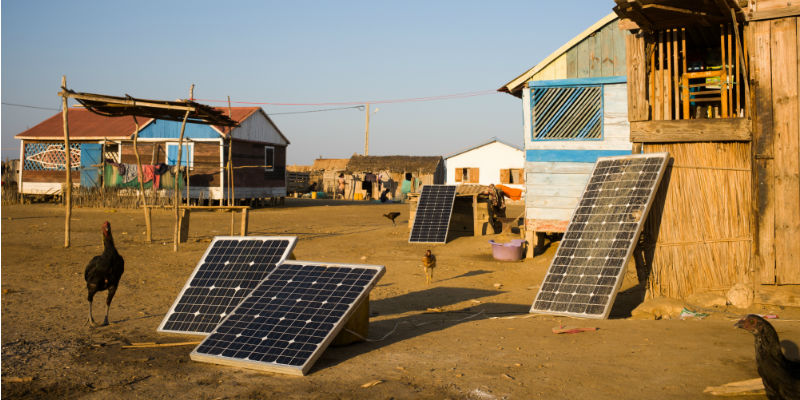In a region where power outages are a common daily challenge, families and businesses in sub-Saharan Africa are increasingly turning to off-grid solar solutions, driven by an unreliable grid and rising electricity costs.
According to the World Bank, the number of mini grids, which solar systems support to power homes or businesses, has grown from 500 in Africa in 2000 to 3,000 today.
Read also: Bboxx Acquires Ghana solar energy provider, PEG Africa
Solar Energy’s Growing Influence in Kenya
Kenya, for example, has witnessed a surge in the adoption of solar energy due to escalating electricity prices caused by higher fuel costs. This trend isn’t limited to individual households; even steel manufacturers and cooking oil factories have embraced solar energy, with some of the biggest clients for Nairobi-based company CP Solar.
According tho the Associated Press, CP Solar’s managing director, Rashmi Shah, highlighted their achievement of installing 25 megawatts of solar systems in the past six years. He emphasized that solar energy, despite the initial high installation costs, offers clients the ability to recoup their initial investment through savings within the first four years.
“We are not polluting the air at all; we are not raising the temperatures; we are not affecting the climate of the Earth. So that is why more and more emphasis is coming to cleaner energy,” Shah explained, emphasizing the growing focus on cleaner and more sustainable energy sources.
While over half a billion people in sub-Saharan Africa still lack reliable access to electricity, renewable energy, particularly solar power, has emerged as a promising solution. Sub-Saharan Africa holds 60% of the world’s solar potential, making it uniquely positioned for solar energy adoption.
Kenyan President William Ruto emphasized the region’s abundant sunshine during a ministerial session at a recent climate summit, underscoring the untapped solar potential in Africa.
Growing popularity of solar energy in Nigerian homes
In Nigeria, as in Kenya, the landscape is changing. Historically, many households have relied on gasoline generators for power. However, the removal of a gasoline subsidy by the government has sparked increased interest in solar power as a more affordable and sustainable alternative. Currently, only about half of Nigerians are connected to the grid, and power cuts remain commonplace.
While the Nigerian government has yet to introduce incentives to promote solar energy, such as reducing import taxes on solar equipment, the private sector has stepped up to fill the gap. Private companies are now offering households and small businesses the option to pay for solar installations over time, addressing the issue of high upfront costs.
Some Nigerians shared their observations with the Associated Press.
“The problem was affordability, but now customers can pay instalments over a period of 18 months,” said Tunde Oladipupo, an agent for Sun King, a solar power company. This innovative payment model has proven to be a solution for social problems arising from Nigeria’s energy crisis, especially in underserved and low-income households.
Monsurat Qadri, a Nigerian resident, shared her experience with of tackling the challenge of helping her daughter with homework in the evenings without reliable lighting. With grid electricity unavailable and generators becoming prohibitively expensive, she installed a small solar system that powers five bulbs and a fan. Monthly instalments make the system affordable for her.
Unlike Kenya, solar power adoption for industrial use in Nigeria is rare, with very few big industrial productions relying on solar power.
South African government’s initiatives to boost renewable energy
Meanwhile, in South Africa, the government has introduced policies to encourage the generation of renewable energy by mining companies and large industrial operations. Several companies, including Sibanye Stillwater, Anglo American Platinum, and Gold Fields, have announced plans to generate significant amounts of renewable power.
South Africa is also moving to reduce its dependence on coal-fired power, with plans to convert decommissioned power stations to clean generation using solar and wind energy sources.
Many other African governments are gradually beginning to see the importance of renewable energy with the continued increase in the price of fuel, which has risen over $80 per barrel in 2023.
